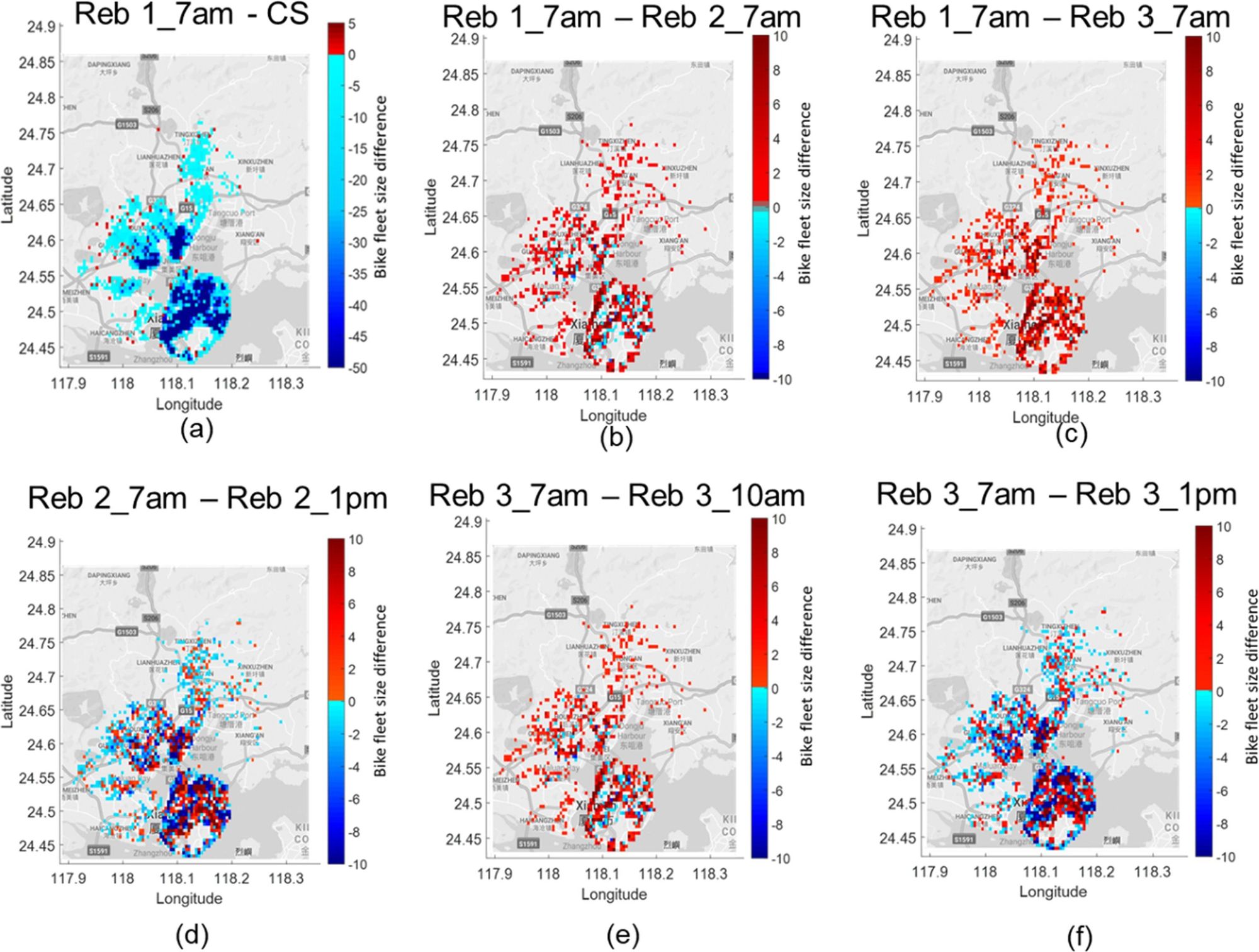Luo, Hao; Zhao, Fu; Chen, Wei-Qiang*; Cai, Hua*
Transportation Research Part C: Emerging Technologies 2020 117, 102705. DOI: 10.1016/j.trc.2020.102705
Abstract
Bike sharing systems (BSSs), being viewed as providing green transportation modes, are growing rapidly in recent years. While BSS operators try to improve the system performance through bike rebalancing and launching more bikes, the current BSSs are facing several sustainability challenges. Bike oversupply could bring intensive greenhouse gas (GHG) emissions due to manufacturing excessive bikes, while frequent bike rebalancing could significantly increase fuel consumption of rebalancing vehicles. Existing studies only optimized given BSS from the system operational perspective (i.e. rebalancing), with predetermined bike fleet size and rebalancing frequencies. However, the bike fleet size and rebalancing should also be optimized from the life cycle’s perspective. This study proposes a framework to obtain the optimal bike fleet size and rebalancing strategy to minimize the system’s life cycle GHG emissions, integrating a simulation model for fleet size estimation, an optimization model for bike rebalancing, and a life cycle assessment (LCA) model to quantify the system’s GHG emission rate. The framework is applied to a dock-less BSS in Xiamen, China as a case study to evaluate the tradeoff between having more bikes (requiring less rebalancing) and more frequent rebalancing (requiring fewer bikes). Our results show that (1) the current BSS in Xiamen is significantly oversupplied, with only 15% of current bikes needed to serve the same demands; (2) decreasing bike fleet size through more frequent rebalancing will increase the system’s life cycle GHG emissions; and (3) choosing appropriate rebalancing fleet size, loading capacity, and setting multiple depots can reduce a BSS’ rebalancing GHG emissions.
The differences of initial bike layout between the different rebalancing cases on the weekday.

Proposed modeling framework.
